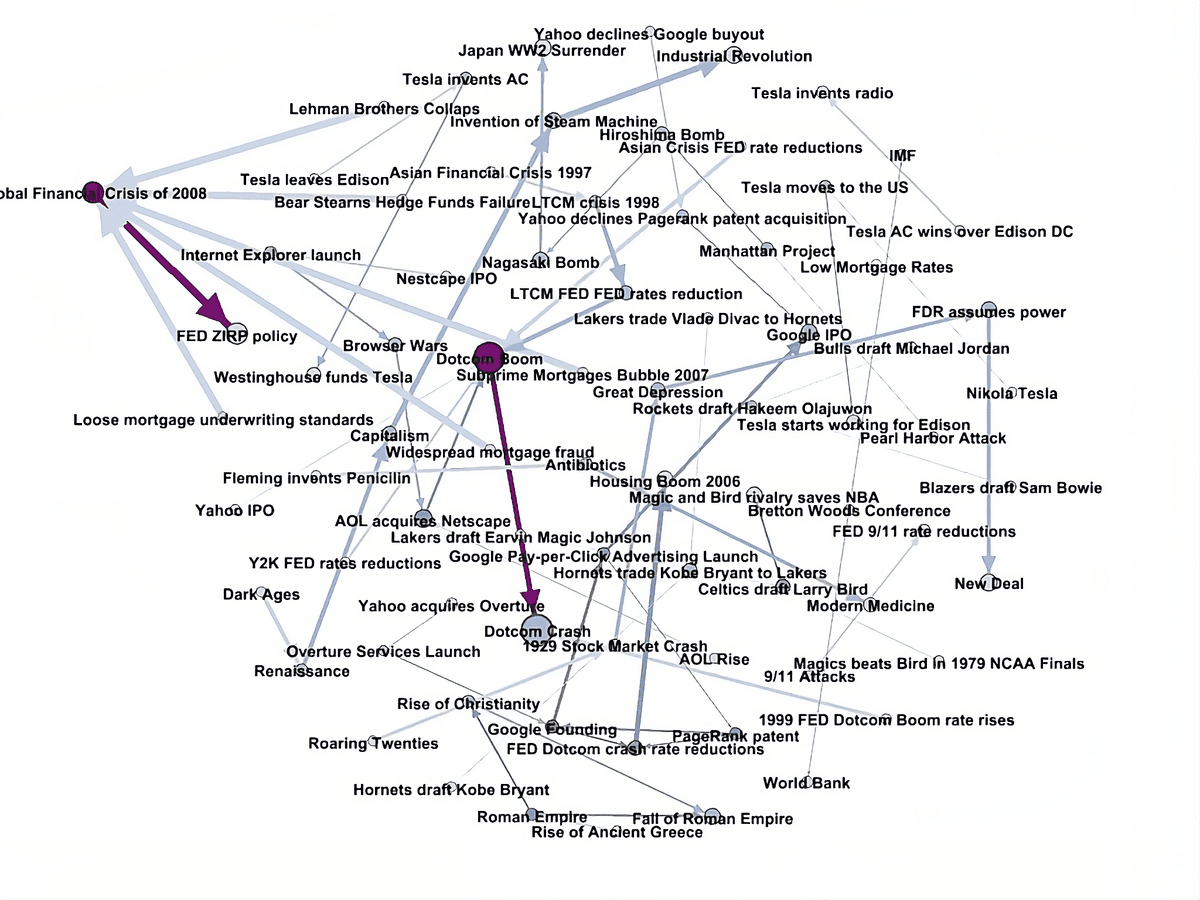
Reasoning is at the Core of All Intelligence
Reasoning is what has separated human beings from the rest of the life on our planet.The ability to find out WHY things are, what their causes effects are is what enabled us humans to progress from the earliest days of our ancestors hunting and gathering in the forests.
Reasoning is what has separated human beings from the rest of the life on our planet.
The ability to find out WHY things are, what their causes effects are is what enabled us humans to progress from the earliest days of our ancestors hunting and gathering in the forests.
Reasoning is totally pervasive, as it applies to basically everything we can put into words. We can reason about things, abstractions, concepts, notions, events, emotions and everything else. In fact we can talk about a semantics of everything that can be put in words in terms of its causes and effects. We might call such semantics causal. Semantics is concerned about studying meanings, that are describing things in terms clear and understandable to us. For example, we might ask 'what is a door'? And we might give an answer such as 'an opening in a wall covered with a piece of material that covers it and can be opened and closed'. That would not be a bad answer but there is another approach, of asking what are causes and effects of having a door in the wall, and it being closed and opened? And there would be beneficial effects, of being able to control who and when passes through the door. In fact such causal semantics could be considered so important that we do not really care about the details of the wall and its material and instead are focused who gets through the door and when and what are the effects of such actions.
Of course, a door is but a simple concrete example that would appear rather trivial. What about an abstract concept such as 'increasing money supply'? It is abstract because it is about money which itself is a deep abstraction.
It is so deep because money is MUCH more than paper bills and metal coins in wallets.
Note how we used the word 'because' in the previous two sentences. The causal dependence of increasing money supply being an abstract concept depending on the abstractness of the money itself is at the core of understanding both.
Of course, there is much more than what we have said so far since there are lots of effects and consequences of increasing money supply. And there are lots of causes why we might do such increases, as opposed to doing it randomly which we understand not to bea good idea. Why would it so bad? Because of its EFFECTS and CONSEQUENCES.
Now that we are starting to get a glimpse of the extreme importance and ubiquity of causality, it starts appearing very puzzling that the modern information systems, such as Google but others too, are not paying any special attention to such important relation. The core reason for such a state of affairs is their approach of treating queries as collections of keywords that are indexed and ranked so a bunch of blue links where such keywords appear are returned quickly.
Note how such an approach is about just repeating keywords from the query as opposed to understanding what we are asking.
Qaagi has been built from the ground up to solve this problem in a way that very clearly presents direct causal answers in form of causes and effects to practically everything that can be put in words.
The scale of Qaagi is enormous, namely billions of direct answers to user queries in terms of the causes and effects of what they are asking.
What we set out to do was to create a largest collection of causal knowledge of our civilization and present it to users in a way that is very easy to use and understand. Of course, it is you, our great users, who will be the ultimate judge of what we have built and that is why we value tremendously your inputs and feedback.
Borislav Agapiev
Founder & CEO, Qaagi.com
